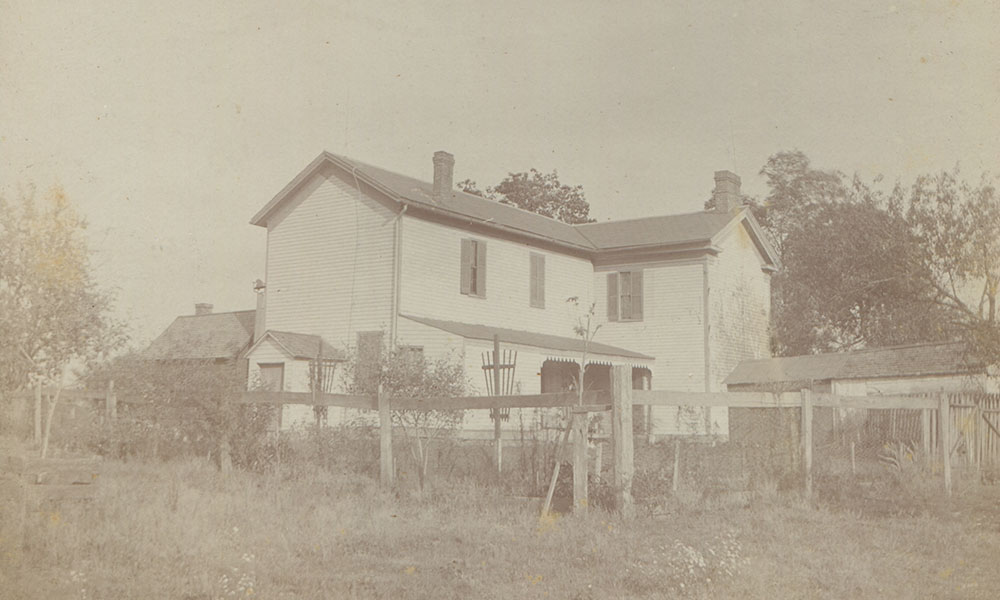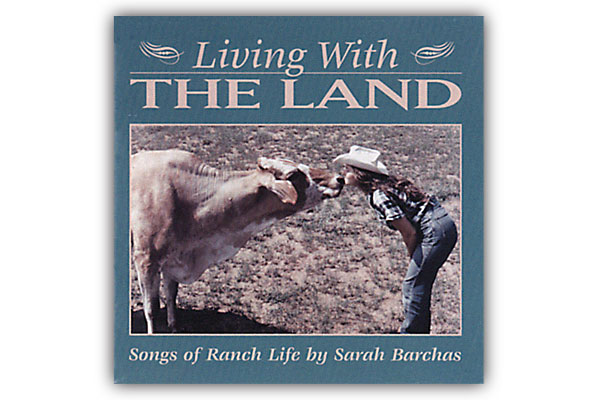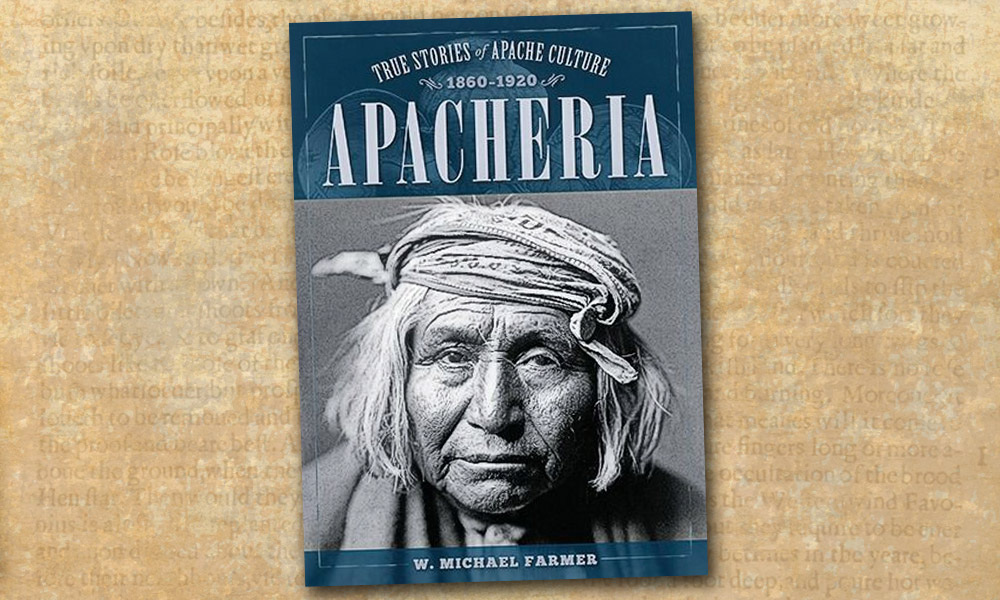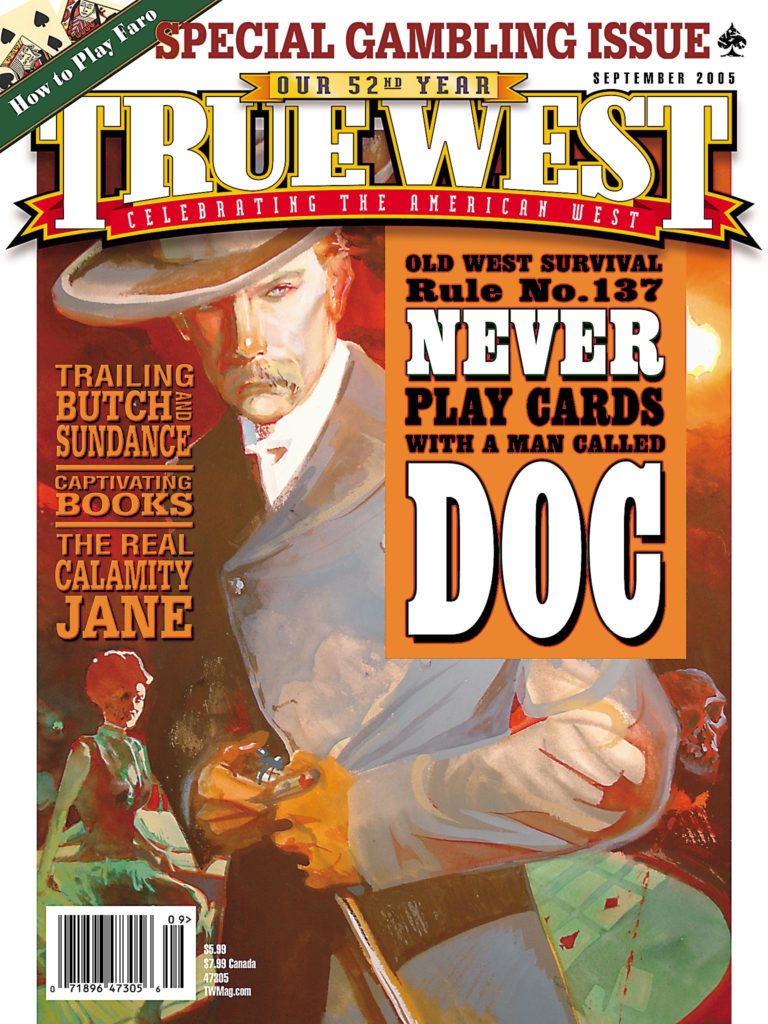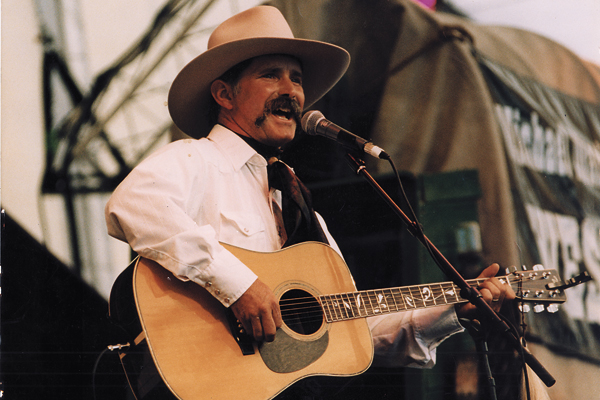 Some may say it’s his voice, textured like barn wood: soft, weathered and grainy.
Some may say it’s his voice, textured like barn wood: soft, weathered and grainy.
Or the way he wears his hat—to one side, casting a shadow over intense blue eyes. And those who know his music insist it’s just the magic of the songs, usually anchored to a waltz-tempo beat.
It may seem futile to analyze style, but that’s what sets this cowboy singer apart: not the melodies and lyrics of his many originals, but the very way he connects with an audience and simply sets his songs free, as crisp and natural as breathing.
Dave Stamey, California cowboy, seems to be part swing artist, blues brother and saddle pal. Whether he’s singing a tried-and-true Cowboy classic or one of his own breezy range songs in three-quarter time, he’s generally got your attention. At a recent Colorado cowboy gathering at the Arvada Center, he brought a packed auditorium to pin-drop silence with a rendition of his original, “The Campfire Waltz.” The song’s lyrics and melody weave a spellbinding image of a couple dancing under the stars, as romantic as the West can get without being oversentimental. Fifty years from now, it will undoubtedly be a Cowboy classic.
Awarded the Male Performer of the Year by the Western Music Association (WMA) and the Will Rogers Award from the Academy of Western Artists in 2000, Stamey has also been a three-time nominee for Songwriter of the Year by the WMA. He’s played at the Autry (now the Museum of the American West), the Elko Cowboy Gathering, the Santa Clarita Cowboy Festival and the Nashville Extravaganza, to name a few. When asked how he accounts for his apparent success, his humility shines.
“The rise of the independent artist is what I’m about,” Stamey explains. “I’m really a California phenomenon. My fans are interested in the music, and whatever is new is basically spread via word of mouth.” Yet his bookings are scheduled nearly year round, and he has five CDs that sell extremely well (his latest is If I Had a Horse). When he’s not on stage, he day works as a wrangler on the Alisal Dude Ranch near Santa Barbara. On the weekends, he and his wife Melissa ride horses to relax. Together, they’re looking forward to settling soon on their own ranch in Visalia, where they hope to train quarter horses for trail work.
Stamey credits his love for the genre to the 1965 album featuring Johnny Cash singing the ballads of the True West. He pushed himself to learn those old-time Cowboy classics and eventually recorded them in a collection recently re-released on CD. Along the way, he developed an artistic affinity for the Western way of life. “The geography inspires me,” he explains. “As you drive inland, you can get lost in the beauty of the countryside. Most of my themes are anchored in the land.”
Stamey is revered at the grassroots level: real ranchers adore his work. To quote a die-hard fan, Cowboy poet John Nelson, a well-known outfitter in Gunnison, Colorado: “Stamey never delivers anything but the best. He’s the real deal around these parts. Our idea of cowboy music.”
Not bad praise for this Southern California kid. Especially since, as everyone knows, you can’t fool a mountain man.
Corinne Brown caught up with Dave Stamey last January at the Arvada Cowboy Poetry and Music Gathering. She now has all of his albums and is threatening to learn some of his music herself (TW Maniacs, beware).


